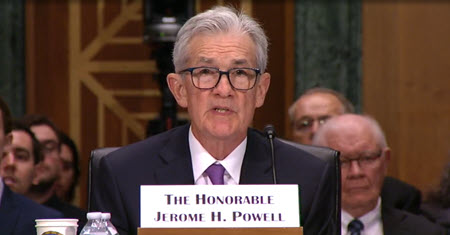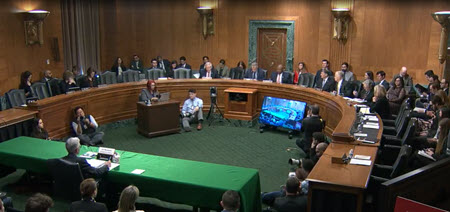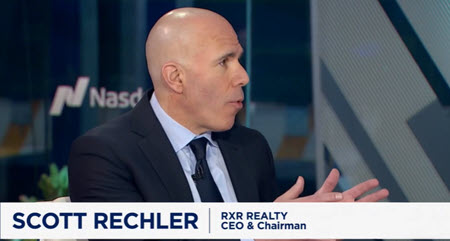
Federal Reserve Chair Jerome Powell testified before congressional committees this week about the risks posed by commercial real estate loans to regional banks—and that he expects “broad and material changes” to a regulatory proposal to hike bank capital requirements known as “Basel III.” (The Hill, March 7 and Reuters, March 6)
CRE Concerns & Banking
- The Senate and House hearings focused on the Fed’s March 1 Monetary Policy Report to Congress. The publication stated, “Credit quality at banks remained strong, although the quality of CRE loans backed by office, retail, and multifamily buildings continued its decline, a result of the lower demand for downtown real estate prompted by the shift toward telework.” The report also noted, “Low levels of transactions in the office sector likely indicated that prices had not yet fully reflected the sector’s weaker fundamentals.”
- During a March 7 Senate Banking Committee hearing, Fed Chair Powell responded to questions from Sen. Catherine Cortez Masto (D-NV) that he expects some smaller banks with high commercial real estate office concentrations will fail, but that risks posed by these loans are “manageable.” (Watch a video clip of the exchange, above)
- Similar concerns were raised by policymakers with Powell during a March 6 House Financial Services Committee hearing. The Fed chair addressed why he expects manageable bank losses and added, “We’ve had a secular change in the economy, which has left office demand significantly lower, at least temporarily, and perhaps for a long time. The same is true in some downtown retail (properties) associated with office workers. So it’s a shock to the system.”
Basel III Changes
- The committees also heard Powell state that the “Basel III” regulatory proposal, which would significantly increase capital requirements for banks with at least $100 billion in assets, is likely to be overhauled after an enormous private sector response. He commented to the Senate panel, “We do hear the concerns and I do expect that there will be broad and material changes to the proposal.” He told House lawmakers that a rewrite of the proposal is a “very plausible option.” (Fortune and GlobeSt, March 7 | Bloomberg and PolitcoPro, March 6)
- The Real Estate Roundtable raised industry concerns about the negative impact of the Basel III proposal in a Jan. 12 letter to the Fed and other agencies. The comments outlined how the proposal would decrease real estate credit availability, increase borrowing costs for commercial and multifamily real estate properties, and negatively impact the U.S. economy—and urged federal regulators to withdraw their proposed rulemaking.
- The New York Times DealBook reported this week that Basel III could crimp lending as some banks struggle with office portfolios and a looming “maturity wall” of $1.5 trillion in CRE loans come due over the next two years. (New York Times, Feb. 7)
Industry Views
- On March 6, Roundtable Board Member Scott Rechler (Chairman and Chief Executive Officer, RXR) told CNBC’s Squawkbox that high interest rates, price discovery, and the amount of maturing CRE loans have resulted in a “slow-moving train wreck” for regional banks.
- Rechler, a member of the New York Fed’s Board of Directors, said, “There’s a balance. The longer rates stay higher, there’s more distress. For the industry, there’s enough imbalance right now that some level of rates moderating will help ease this transition. Capital structures are upside down. They’re going to need to be re-equitized, there’s going to be write-offs. So if you can bring down (interest rates), it can create some transaction activity.” (Squawkbox, March 6)
- Squawkbox also featured Roundtable Member Marty Burger (Infinity Global Real Estate Partners CEO and former Silverstein Properties CEO) on Feb. 28 to discuss office-to-residential conversion opportunities in the current CRE environment. (CNBC, Feb. 28)
Today, RER’s Immediate Past Chair Debra Cafaro (Chairman and Chief Executive Officer, Ventas, Inc.) discussed the CRE market with a focus on the senior housing sector on Bloomberg Markets. “For the commercial real estate sector writ large, those tightening financial conditions are having an impact, particularly in sectors like office, where you have the demand fall off. There will be an impact on the smaller lenders. It is something the system will have to absorb over time with $1 trillion of real estate loans coming due in 2024. It is having an effect. The best elixir for that might be lower rates,” Cafaro said.
# # #



